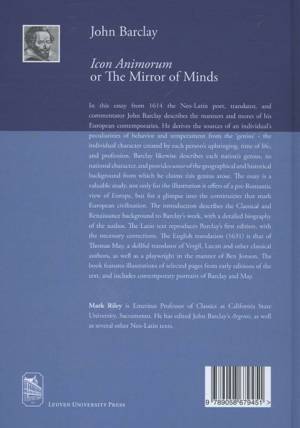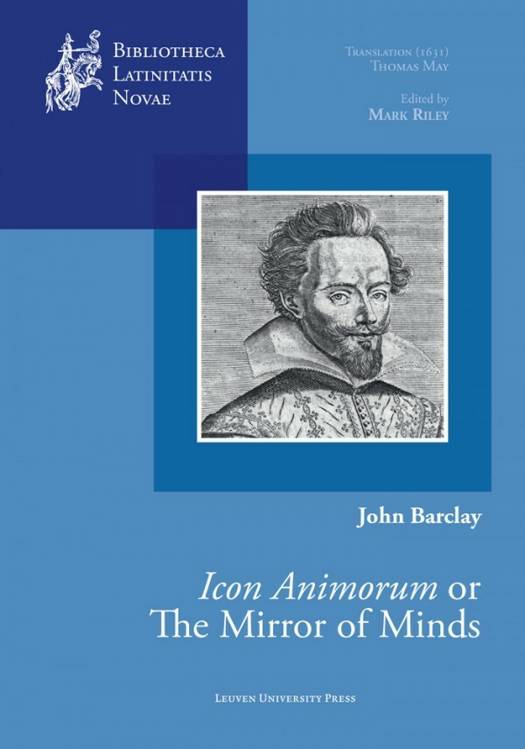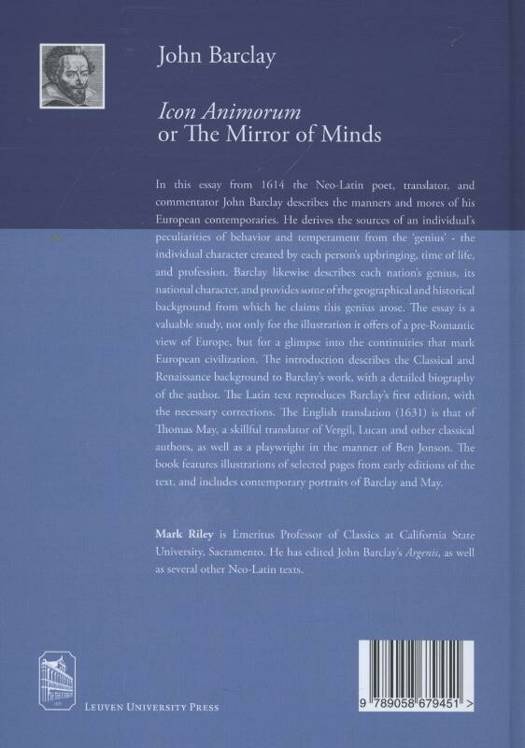
- Afhalen na 1 uur in een winkel met voorraad
- Gratis thuislevering in België vanaf € 30
- Ruim aanbod met 7 miljoen producten
- Afhalen na 1 uur in een winkel met voorraad
- Gratis thuislevering in België vanaf € 30
- Ruim aanbod met 7 miljoen producten


Omschrijving
In this essay from 1614, the Neo-Latin poet, translator, and commentator John Barclay describes the manners and mores of his European contemporaries. He derives the sources of an individual's peculiarities of behavior and temperament from the "genius"--the individual character created by each person's upbringing, time of life, and profession. Barclay likewise describes each nation's genius, its national character, and provides some of the geographical and historical background from which he claims this genius arose. The essay is a valuable study, not only for the illustration it offers of a pre-Romantic view of Europe, but for a glimpse into the continuities that mark European civilization.The introduction describes the Classical and Renaissance background to Barclay's work, with a detailed biography of the author. The Latin text reproduces Barclay's first edition, with the necessary corrections. The English translation (1631) is that of Thomas May, a skillful translator of Vergil, Lucan, and other classical authors, as well as a playwright in the manner of Ben Jonson. The book features illustrations of selected pages from early editions of the text, and includes contemporary portraits of Barclay and May.
Specificaties
Betrokkenen
- Auteur(s):
- Vertaler(s):
- Uitgeverij:
Inhoud
- Aantal bladzijden:
- 380
- Taal:
- Engels
- Reeks:
Eigenschappen
- Productcode (EAN):
- 9789058679451
- Verschijningsdatum:
- 15/05/2014
- Uitvoering:
- Hardcover
- Formaat:
- Genaaid
- Afmetingen:
- 175 mm x 241 mm
- Gewicht:
- 879 g

Alleen bij Standaard Boekhandel
Beoordelingen
We publiceren alleen reviews die voldoen aan de voorwaarden voor reviews. Bekijk onze voorwaarden voor reviews.












